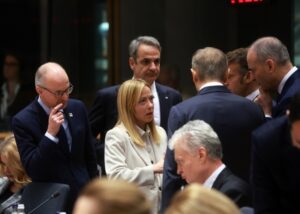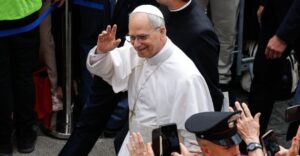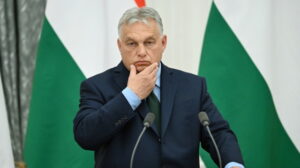Justin Trudeau, Canada’s prime minister for nearly a decade, announced on Monday that he would resign as leader of the Liberal Party, following mounting pressure from both voters and his party.
In an interview in front of his official residence, Trudeau admitted that “the country needs a real choice in the next election” and that internal discontent is preventing him from effectively fulfilling his role.
His decision to resign came as a result of political crises, low popularity, and the dramatic resignation of his deputy, Chrystia Freeland, in December. Trudeau will remain in the prime minister’s post until a new party leader is elected and has called for parliament to be suspended until March 24 to allow time for the succession process.
Watch the video, the announcement of his resignation:
From the top to the bottom: Trudeau’s journey
As the BBC noted in an analysis, Trudeau took office in 2015, bringing new air to Canada’s political scene. At the time he was regarded as one of the most eloquent politicians on the planet, as both his youthfulness, then-contemporary speech, and communication charisma led the Liberals from third place to a historic majority, recording one of the most impressive victories in the country’s political history.
His first few terms were marked by optimism, ambitious reforms, and international recognition.
However, his career was also marked by scandals, such as the SNC-Lavalin case, where he was accused of violating conflict of interest rules, and the selection of a charity with ties to his family to manage a government program in 2020. These cases tarnished his image and sparked intense political controversy.
Despite the challenges, Trudeau managed crises such as the pandemic COVID-19, renegotiated the Free Trade Agreement with the US under Donald Trump, and implemented social programs that helped reduce poverty. However, polls have shown a steady decline in support for him, especially after the 2019 election, when the Liberals lost their majority and had to rely on coalitions.
The reasons behind the resignation
The pressure increased dramatically in the summer of 2024 when the Liberals suffered heavy defeats in their traditional strongholds. The government’s failure to address the rising cost of living and concerns over immigration management contributed to the growing discontent.
Frustration over the failure to deliver on big promises, such as electoral reform and environmental commitments, intensified the government’s deterioration.
The resignation of Chrystia Freeland, who cited disagreements over Trudeau’s strategy in the face of challenging US relations, was the final blow. Within the party, top figures made it publicly clear that they no longer supported his leadership.
Trudeau’s legacy
Despite the adversity, Trudeau leaves behind important political legacies. Efforts to reconcile with Indigenous peoples, a shift to green policies, and the strengthening of the welfare state are recognised as his major achievements. However, the deterioration of his public image and a sense of disconnection from voters’ concerns characterize the end of his term.
His political rival, Pierre Poilievre, appears to be gaining ground in the polls, with the Conservatives holding a steady lead. The change of leadership in the Liberals will determine the future of the party and the course of the country in the next elections.
Ask me anything
Explore related questions





